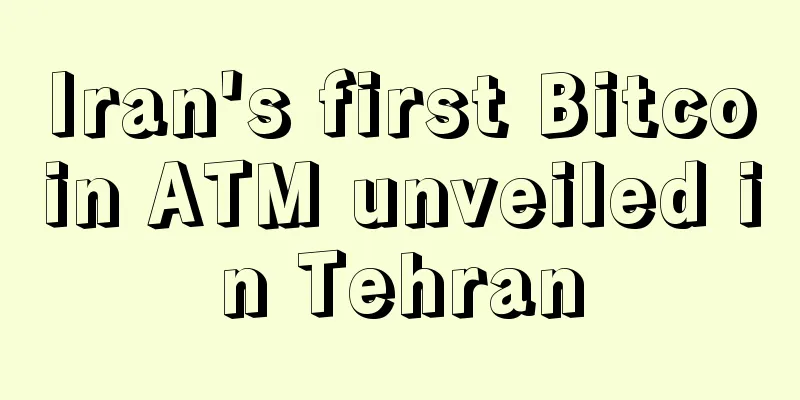609 Regulatory Day: Many provinces ban mining, search and close exchanges, and arrest money launderers in a unified manner. What is the logic behind this and what will happen in the future?

|
Wu said author | Colin Wu Editor of this issue | Colin Wu On June 9, recent regulatory policies were released in a concentrated manner. What is the logic behind them and what is the future development? 1. Changji, Xinjiang and other places issued a notice that all virtual currency mining operations would be suspended for rectification before 14:00 on June 9. The main basis was the "Measures for Energy Conservation Review of Fixed Asset Investment Projects". Subsequently, the computing power of the entire network dropped sharply. Except for ViaBTC, all of the top 7 mining pools dropped by more than 20%, and Ant Pool dropped by more than 33%. 2. Qinghai also issued a document in the evening. The Qinghai Provincial Department of Industry and Information Technology also issued a notice on the comprehensive closure of virtual currency mining projects, requiring all regions to clean up and rectify relevant virtual currency mining activities. Do the following work: 1. It is strictly forbidden for all regions to approve various virtual currency mining projects, and all existing virtual currency mining projects will be completely shut down. 2. Resolutely investigate and correct the project entities that are established in the name of big data, supercomputing centers, etc. but are engaged in virtual currency mining. Stop providing venues and power support for virtual currency mining activities. 3. Inspections and spot checks will be carried out on the cleanup and rectification in the later stage. Please prepare relevant materials. 3. The PC versions of all Chinese search engines, including Baidu and Sogou, have blocked the main keywords of the three major exchanges, and Zhihu and Weibo have also been blocked. 4. The Payment and Clearing Association of China, a subsidiary of the central bank, issued a risk warning to the entire industry. The third warning is: using virtual currency and blockchain technology to evade fund tracing, using virtual currency as a medium for gambling points, or using virtual currency for recharge transactions. 5. Under the unified command of the Office of the Inter-ministerial Joint Conference on Combating and Managing New Types of Telecom Network Crimes under the State Council, the national "Card Cutting" operation launched the fifth round of concentrated network closing. Public security organs in 23 provinces, autonomous regions and municipalities, including Beijing, Hebei, Shanxi and Liaoning, simultaneously carried out network closing operations to carry out concentrated arrests of criminal gangs that used virtual currency to provide transfer and money laundering services for telecommunications network fraud activities. As of 15:00 on the same day, more than 170 criminal gangs were destroyed and more than 1,100 criminal suspects were arrested. Most of these service providers may be so-called "OTC merchants." However, due to the historic success of El Salvador's Bitcoin legislation, Bitcoin rose instead of falling, up 13%, leading most mainstream currencies. Of course, this is also due to the correction factor of the sharp drop on June 8, and it has not yet broken through 40,000 US dollars. What is the logic behind the concentrated release of China's regulatory policies, and what clues can we draw? Among them, three clear policy directions can be clearly seen: "cracking down on high-energy-consuming mining", "limiting online dissemination as much as possible", and "cracking down on money laundering". First: The mining sector is not optimistic. For various reasons, Inner Mongolia closed mining very early and very aggressively. In Sichuan, Yunnan and other places, a large amount of abandoned water cannot be used for other purposes, and clean energy has low carbon emissions, so there is no reason to close mining in theory. Therefore, Xinjiang has become the focus of contradictions. Xinjiang has wind and solar power that needs to be consumed, but it does use thermal power. Although we still need to wait and see in the future, Sichuan and Yunnan may also face some pressure in the future under the comprehensive blow to the fundamentals of thermal power. In addition, domestic mining will face greater pressure during the dry season, so more miners have also strengthened their determination to go overseas. Second: From the previous official media's continuous bombardment of articles, to the banning of Weibo celebrities, to yesterday's most intense search engine and content media's comprehensive blocking of the three major exchanges, the Internet regulatory authorities have played a very important role in this round of crackdowns on virtual currencies, which is also in line with the policy's requirement of "preventing personal risks from being transferred to society." It is expected that in the future, all kinds of cryptocurrency communities, content and services on the Chinese Internet will be subject to stricter restrictions. WeChat groups, QQ groups, etc. may become targets of crackdowns. Third: Fighting against money laundering using virtual currencies is also consistent, but the centralized closing is more deterrent. Other OTC merchants and the OTC platforms of exchanges may be threatened here. But the possibility of a full closure remains to be seen. Because as mentioned earlier, the exchanges currently cooperate well with the public security departments, the exchanges have KYC and can assist in on-chain tracking. If they are cancelled and go underground, it will make arrests more difficult. |
<<: Bitcoin is sucking blood and rising, is the bull market back?
Recommend
Guo Erbao forks Ethereum - You can cheat me, but be careful about how many times you try!
A hot topic recently is the Ethereum fork. The in...
What is the fate of people with a long philtrum?
In physiognomy, the philtrum is the indentation b...
BTC123 joins hands with OXBTC to integrate computing resources
BTC123 (www.btc123.com), the earliest and largest...
Facial features that indicate wealth in middle and old age
Facial features that indicate wealth in middle an...
Study: U.S. is the country ‘most prepared for cryptocurrencies’
Despite the absence of a clear regulatory framewo...
What kind of people have the best fortune?
A person's fate is already determined. From t...
Interpreting Market Indicators Where are we in the cycle?
I tend to think that the "wisdom of crowds&q...
The fortune of a man with four white eyes
What is four white eyes Four white eyes means the...
PayPal welcomes a bitcoin startup CEO to its board
Online payment giant PayPal announced today that ...
Which women can help their husbands and children according to their faces?
Which women can help their husbands and children ...
Don't play tricks, use sincerity to impress everyone around you
When dealing with others, being sincere is the mo...
How to analyze the fate and personality of a woman with a high forehead
What is the personality and destiny of a woman wi...
Should All Commerce Sites Accept Bitcoin?
Author: GTong Despite the massive investments fro...
Refusal to Pay Arbitrage Attack: An Attack Method and Prevention of Bitcoin OTC Transactions
Chapter 0 Introduction There are all kinds of bad...









